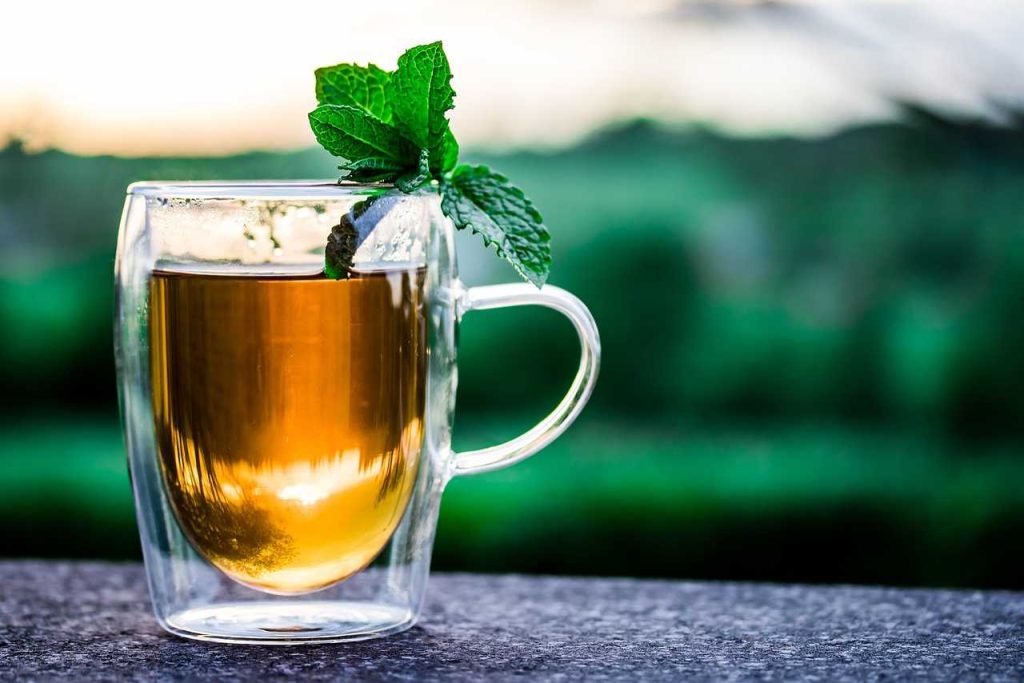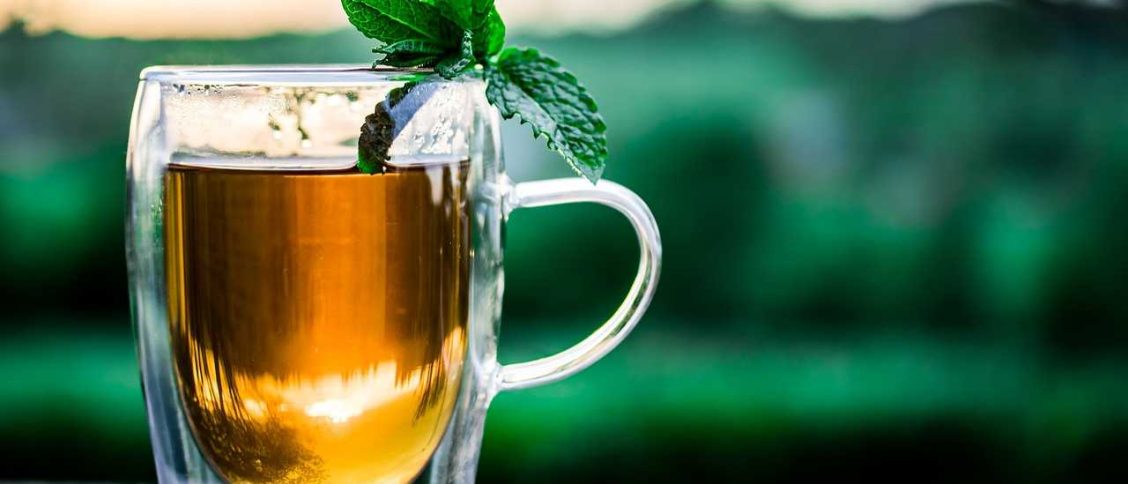Intermittent fasting (IF) has become a go-to lifestyle for many looking to lose weight, improve metabolic health, or enhance their overall well-being. The practice of fasting cycles between periods of eating and fasting, and while it might seem daunting at first, incorporating the right teas can make your fasting journey smoother and more enjoyable.
In this blog, we’ll explore the best teas for intermittent fasting, dive into their benefits, and explain why they work so well within the framework of fasting.
With a focus on appetite suppression, metabolism support, hydration, and mental clarity, certain teas can be powerful allies in achieving your fasting goals.

What is Intermittent Fasting?
Before we dive into the top teas, it’s essential to understand what intermittent fasting entails. Intermittent fasting is less about “what” you eat and more about “when” you eat. The most popular intermittent fasting methods include:
- The 16/8 Method: Fasting for 16 hours and having an eating window of 8 hours.
- The 5:2 Diet: Eating normally for five days and restricting calorie intake to 500-600 on two non-consecutive days.
- Alternate-Day Fasting: Alternating between eating one day and fasting (or drastically reducing calories) the next.
- 24-Hour Fasts: Going a full 24 hours without food once or twice a week.
While fasting, your body goes into a fat-burning state (ketosis) and begins to repair cells, improve insulin sensitivity, and burn stored fat for energy. However, hunger, energy dips, and mood swings can make fasting challenging, especially for beginners. This is where tea comes in as a helpful fasting companion.
How Does Tea Support Intermittent Fasting?
Teas are natural, low-calorie, and packed with beneficial compounds that align perfectly with intermittent fasting goals. Here’s how tea can make fasting easier:
- Hydration: Dehydration can occur during fasting, especially since people often rely on food for hydration. Drinking tea ensures you stay hydrated, which helps manage hunger and keeps bodily functions running smoothly.
- Appetite Suppression: Certain teas contain compounds that help control hunger pangs, allowing you to extend your fasting window more easily.
- Metabolic Boost: Some teas can increase metabolism and promote fat oxidation, helping you burn more calories even while fasting.
- Improved Focus: Many teas, particularly those containing caffeine and L-theanine, enhance mental clarity and focus, making it easier to concentrate on tasks during fasting periods.
- Rich in Antioxidants: Fasting itself is a detoxifying process, and many teas, especially green tea and herbal teas, are rich in antioxidants that support cellular health and protect against oxidative stress.
To get the most out of your fast, you’ll want to choose teas that complement fasting’s benefits without breaking your fast. Let’s look at some of the best options.
1. Green Tea

Why It Works:
Green tea is revered for its myriad health benefits and is often recommended for intermittent fasting due to its high levels of antioxidants, particularly epigallocatechin gallate (EGCG), which has been linked to enhanced fat burning. Green tea also contains a moderate amount of caffeine, which helps boost energy and alertness without overwhelming the system.
Benefits During Fasting:
- Increased Fat Oxidation: The combination of caffeine and catechins, especially EGCG, has been shown to promote fat breakdown. Studies suggest that green tea increases the rate of fat oxidation during fasting, aiding weight loss.
- Metabolism Boost: Caffeine and catechins also increase metabolic rate, helping you burn more calories even at rest.
- Appetite Suppressant: Green tea’s caffeine content provides a mild appetite-suppressing effect, which can help curb hunger and reduce cravings during fasting windows.
- Improves Insulin Sensitivity: Green tea has been shown to lower blood sugar levels and improve insulin sensitivity, helping regulate energy levels during fasting.
How to Enjoy:
To keep your fast intact, drink plain green tea with no added sweeteners, milk, or cream. For added flavor, you can add a squeeze of lemon or ginger, both of which are also fasting-friendly.
2. Black Tea
Why It Works:
Black tea is rich in polyphenols, powerful antioxidants that promote fat loss, improve gut health, and regulate blood sugar levels. Compared to green tea, black tea undergoes a full oxidation process, giving it a stronger flavor and higher caffeine content. This makes it a fantastic tea for people who prefer a more robust drink during fasting.
Benefits During Fasting:
- Appetite Control: The tannins in black tea give it a slight bitterness, which can help curb hunger and make it easier to stick to your fasting window.
- Energy Boost: Black tea contains more caffeine than other teas, providing a natural energy boost without the crash associated with coffee.
- Improved Digestion: Polyphenols in black tea help maintain a healthy gut by encouraging the growth of good bacteria, which is important during prolonged fasting periods.
- Blood Sugar Regulation: Black tea has been shown to reduce post-meal blood sugar spikes, which is essential for maintaining steady energy levels and avoiding crashes during eating windows.
How to Enjoy:
Black tea can be consumed hot or iced. Make sure to avoid any sweeteners or dairy, as these will break your fast. Consider adding spices like cinnamon or a slice of lemon to enhance flavor without adding calories.
3. Oolong Tea
Why It Works:
Oolong tea falls somewhere between green and black tea in terms of oxidation and flavor. It offers a combination of the benefits from both types of tea. Rich in antioxidants and polyphenols, oolong tea is known for its fat-burning properties and its ability to boost metabolic rate.
Benefits During Fasting:
- Fat Burning: Studies suggest that oolong tea can help increase fat oxidation, making it an excellent option for those aiming to lose weight during intermittent fasting.
- Metabolic Boost: Oolong tea has been found to increase energy expenditure, helping you burn more calories even when you’re not eating.
- Regulates Blood Sugar: By improving insulin sensitivity, oolong tea helps prevent blood sugar spikes and crashes during your eating window.
- Appetite Suppressant: Like other caffeinated teas, oolong provides a natural appetite suppressant effect, helping you prolong your fast without feeling overly hungry.
How to Enjoy:
Oolong tea can be enjoyed hot or cold and pairs well with a slice of lemon or fresh mint. Drink it plain to keep your fast intact, avoiding sweeteners and cream.
4. Peppermint Tea
Why It Works:
Peppermint tea is an herbal, caffeine-free tea known for its digestive benefits and calming properties. While it doesn’t have the same metabolism-boosting effects as caffeinated teas, peppermint tea is a great option for curbing hunger and soothing digestive discomfort during fasting.
Benefits During Fasting:
- Hunger Suppression: Peppermint tea is known for its ability to suppress appetite and curb cravings, making it easier to extend your fasting window.
- Aids Digestion: Peppermint tea helps to relax the muscles of the digestive tract, reducing bloating and discomfort, which can be especially helpful when fasting for long periods.
- Caffeine-Free: If you’re sensitive to caffeine or fasting late in the day, peppermint tea offers a caffeine-free option to keep you hydrated and satiated.
How to Enjoy:
Enjoy peppermint tea on its own, without sweeteners, during fasting. Its refreshing taste makes it an excellent choice for curbing hunger between meals.
5. Ginger Tea

Why It Works:
Ginger tea is another caffeine-free herbal option that’s packed with health benefits, particularly for digestion and inflammation. It’s also been shown to help regulate blood sugar levels and improve fat burning, making it a good tea for fasting.
Benefits During Fasting:
- Supports Digestion: Ginger tea can help reduce bloating, nausea, and indigestion, all of which can occur when the digestive system is adjusting to intermittent fasting.
- Anti-Inflammatory: Ginger is known for its powerful anti-inflammatory properties, which support overall health and may help reduce the discomfort associated with fasting.
- Improves Insulin Sensitivity: Ginger has been shown to help regulate blood sugar levels and improve insulin sensitivity, which can be especially beneficial when fasting.
How to Enjoy:
Ginger tea has a spicy, warming flavor that can be enjoyed hot or iced. Drink it plain to avoid breaking your fast, or add a splash of lemon for extra flavor.
6. White Tea
Why It Works:
White tea is the least processed of all teas and contains the highest concentration of antioxidants. With a light, subtle flavor and lower caffeine content than green or black tea, white tea is a great option for those looking for a gentle energy boost during fasting.
Benefits During Fasting:
- Fat Breakdown: Studies suggest that white tea can help break down fat cells and prevent the formation of new ones, making it a valuable tool for those looking to lose weight while fasting.
- Gentle Energy Boost: The small amount of caffeine in white tea provides a mild boost of energy without the jitters, helping you stay focused and energized throughout the fasting window.
- Hydration: White tea’s light flavor makes it a great option for hydration, which is crucial during fasting.
How to Enjoy:
White tea is best enjoyed plain. Its delicate flavor doesn’t need any sweeteners, and adding them could disrupt your fast.
7. Rooibos Tea
Why It Works:
Rooibos tea is an herbal, caffeine-free tea made from the leaves of the South African red bush plant. It is rich in antioxidants and has been shown to help regulate fat storage and reduce stress hormones.
Benefits During Fasting:
- Regulates Blood Sugar: Rooibos tea helps regulate blood sugar levels, preventing spikes and crashes that can occur after meals during intermittent fasting.
- Anti-Inflammatory Properties: The high levels of antioxidants in rooibos tea help reduce inflammation and promote overall health, supporting the detoxifying effects of fasting.
- Caffeine-Free: Rooibos tea is caffeine-free, making it a perfect option for evening fasting or for those sensitive to caffeine.
How to Enjoy:
Rooibos tea has a naturally sweet, earthy flavor and can be enjoyed hot or cold. Drink it plain to keep your fast going without any disruptions.
8. Matcha Tea
Why It Works:
Matcha tea is a powdered green tea that is packed with antioxidants and nutrients. Unlike regular green tea, matcha contains the entire tea leaf, which means you get higher concentrations of beneficial compounds like EGCG and L-theanine. This makes matcha a potent fat-burning, metabolism-boosting tea.
Benefits During Fasting:
- Enhanced Fat Burning: The high levels of EGCG in matcha make it one of the most effective teas for boosting fat oxidation during fasting.
- Mental Focus: Matcha contains L-theanine, an amino acid that promotes relaxation without drowsiness. When combined with caffeine, it provides a calm, focused energy that’s perfect for productivity during fasting.
- Boosts Metabolism: Matcha increases metabolic rate and helps the body burn fat more efficiently.
How to Enjoy:
Matcha can be prepared as a hot or iced tea. To avoid breaking your fast, mix matcha powder with hot water or cold water and skip the sweeteners or milk.
How to Choose the Right Tea for Your Fast
When incorporating tea into your intermittent fasting routine, it’s important to stick to teas that are unsweetened and free of additives like milk or sugar, which can break your fast. Here are a few tips to keep in mind:
- No Sweeteners: Avoid sugar, honey, or artificial sweeteners, as these can disrupt the fasting state.
- Mind Your Caffeine Intake: Some teas, like matcha and black tea, are higher in caffeine, which can be helpful in the morning but may disrupt sleep if consumed later in the day.
- Stay Hydrated: Tea is a great way to stay hydrated, but make sure you’re also drinking plenty of water to avoid dehydration during fasting periods.
Conclusion
Tea is an excellent tool for enhancing your intermittent fasting experience. Whether you’re looking to suppress hunger, boost metabolism, improve focus, or simply stay hydrated, there’s a tea that can help.
Green tea, black tea, oolong tea, herbal teas like peppermint and ginger, and even matcha and rooibos all offer unique benefits that support fasting while promoting overall health.
Finding the right tea for your fasting journey might take a little experimentation, but the options are vast, and each tea brings something different to the table. Enjoy the process and drink your way to better health!





